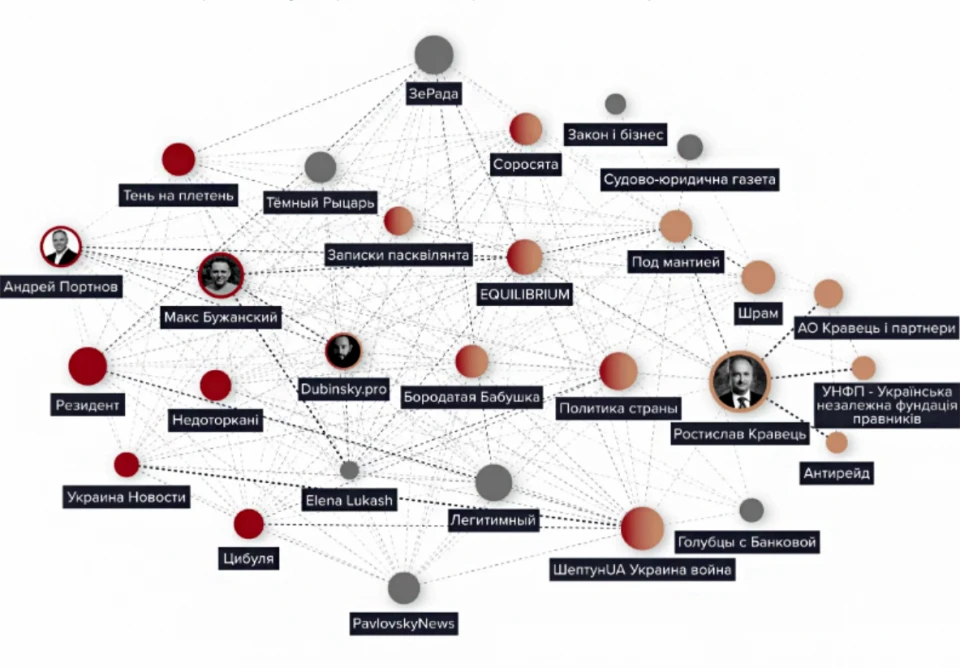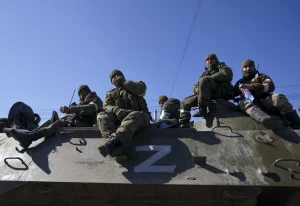
Disinformation and elections: what was discussed in Brussels?
On September 20, the European Committee of the Regions in Brussels discussed the challenges posed by disinformation during wartime and how it affects the implementation of reforms in Ukraine, as well as its potential impact on the upcoming elections
Of course, the issue of Telegram, founded by the now-detained Russian Pavel Durov, was raised. We were able to convey to our Western partners that Russian propaganda uses Telegram not only for information operations but also to counteract reforms.
The Holka civic initiative studied the reposts from various channels and identified a Kremlin network that systematically works to discredit judicial and bar reform. This network includes, in particular, two MPs - Oleksandr Dubinskyi and Maksym Buzhanskyi - both of whom were elected from the Servant of the People party. Russia is always looking for ways not only to create an information environment favorable to its imperial policy but also to integrate its people into the political system.

There was a question from the participants of the event, who numbered around 150, regarding the draft law on the regulation of Telegram and other social networks (11115). This draft law was submitted by representatives from several factions, including Mykola Kniazhytskyi (EU), Mykyta Poturaiev (Servant of the People), and Yaroslav Yurchyshyn (Voice).
Given that YouTube is subject to regulation and can be expected to respond to Google, the Vyshka channel was blocked (this channel is a reincarnation of the pro-Russian Nash channel, which was transformed earlier this year). Western partners should understand that this is not about censorship, but rather about the fact that Telegram, where fake news is spread, is growing its audience. For media outlets that have been building trust for decades, the audience's shift to Telegram poses a serious challenge. Moreover, Telegram charges for advertising but does not pay taxes. This distorts the advertising market and negatively impacts the media business. Why should a state that receives assistance from Western partners not be concerned about paying taxes on its advertising revenue during a war?
On the sidelines, people wondered how Telegram would be regulated if the Presidential Office was not interested in doing so, given that there are several channels with large audiences used for political purposes.
It is true that Detector Media reported that during a meeting with President Volodymyr Zelenskyy, the Office of the President, along with media outlets that have been building their brand and reputation for years, invited representatives of the Trukha channel, which is anonymous and has repeatedly spread fake news.
The fact that Bankova Street has a number of friendly Telegram channels does not mean that we should not work in this direction. On the very day of the event, September 20, Ukrainian military personnel, officials, and critical infrastructure workers were banned from using Telegram on their work devices. Let this be a starting point on the path to regulating this social network.
We paid special attention to disinformation from some government officials who provide our partners with false information. I would like to remind you that civil society organizations and media outlets have stated that MP Olena Shuliak and Oleksandr Kubrakov have misinformed donors to lobby for the interests of developers.
First of all, when we talk about disinformation, we mean false or inaccurate information disseminated for a specific purpose. We are in an existential war with Russia because, unlike the empire that will be destroyed, we have chosen to develop democratically.
When there is no honesty in the information field, it poses a direct threat to freedom, which is a fundamental democratic value.
We have previously noted that Telegram channels, including those of non-Ukrainian lawyer Rostyslav Kravets, which have large audiences and spread fake news, may be used in the future during elections. Russia will not abandon its attempts to influence the political system, and these platforms will create favorable conditions for new pro-Russian political forces.
It is worth recalling that before the 2019 parliamentary elections, Dubinskyi's bank card was used in Russia during a transaction. Therefore, the question arises: what was he doing in a hostile state that attacked Ukraine in 2014, and how did his mother and common-law wife buy real estate in Barcelona? His mother's apartment appeared on the fourth day after the full-scale invasion.
This year, a number of countries will hold elections. However, the political systems of all democratic states must build maximum resilience to ensure that democracy is protected even when elections do not take place.
Ukraine was supposed to hold presidential and parliamentary elections this year. Because of the war, they will not be held. According to the Constitution, we should have 450 members of parliament, but now we have about 400. It is difficult to gather votes in support of important issues now, and it will be even more challenging.
All this is, in part, due to the majority component: in the 2014 and 2019 elections, we did not elect MPs from the constituencies located in temporarily occupied territories. If we had a system of party lists for the entire parliament, this problem would not have been as noticeable.
Since we have extended the party list system to all communities with more than 10,000 registered voters, we have the opportunity to renew the composition of councils when a deputy resigns and can no longer serve in the local council. But even here, the system fails because the territorial election commission often does not meet to introduce a new deputy to office. This is especially true when the new deputy is from the opposition.
Or members of territorial election commissions are simply not motivated to work. It's no secret that members of the commissions receive extra pay, in addition to the meager amounts from the state and the party during elections. Of course, this is unofficial. The question arises: what motivation do they have to work now, in the inter-election period, when they are not properly compensated?
The Holka civic initiative was invited to Brussels by partners from the European Endowment for Democracy. It is very valuable when our international partners provide the media and the public sector with the opportunity to speak at the international level.
In a time of war, we must convey Ukraine's position, as well as what Russian propaganda is doing, to the widest possible audience.
The Committee of the Regions is one of the most important institutions representing local and regional interests at the EU level. It advises and provides opinions on new legislative initiatives that impact the development of regions and communities, which accounts for nearly two-thirds of all EU legislation
Specially for Espreso
About the author. Iryna Fedoriv, journalist, lecturer, leader of the Holka civic initiative.
The editors don't always share the opinions expressed by the authors of the blogs.
- News












































